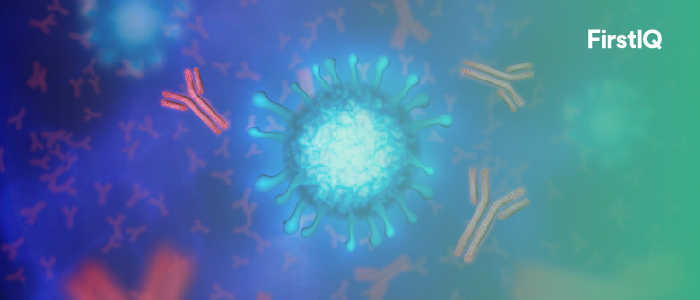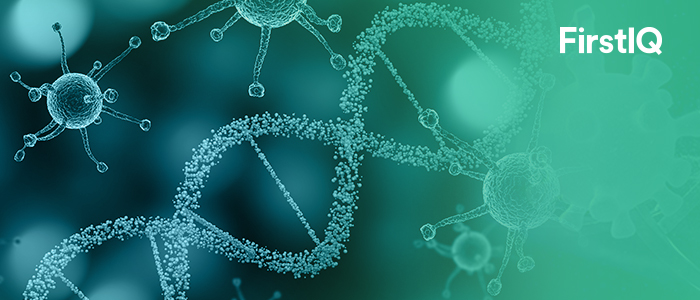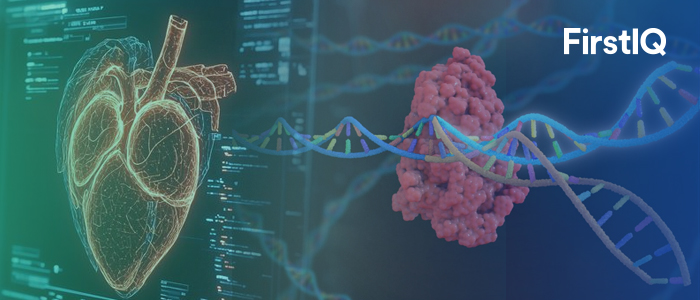Bispecific Antibodies: Bridging the Future of Monoclonal Antibodies and Oncology Therapeutics

Bispecific antibodies (BsAbs) are playing as a game changing role in the monoclonal antibody (mAb) landscape by providing a smarter, dual-targeting approach to disease intervention. "Focus towards the development of various platforms for the generation of bispecific antibodies has led to an increase in these clinically superior therapeutics passing via the clinical trials, which hence steps towards achieving market approvals" said by John Cardone, a marketing manager, Custom Antibodies, Life Science Group, Bio-Rad.
Unlike traditional monoclonal antibodies, BsAbs allow for more accurate interventions in diverse tumor environments, tackling resistance pathways and enhancing immune responses more effectively. Chief Medical Officer, International Myeloma Foundation, Dr. Joseph Mikhael, said,"With bispecific antibodies, we simply deliver a drug that brings together the myeloma cell and a local T cell to engage it. This means that there is no need for collecting T-cells of patients and instead of it we can give them drug directly.”
Furthermore, in malignancy therapy, BsAbs have shown the potential to mediate T-cell interaction, stimulate immune synapses, and target malignant cells better. These features have resulted in increasing regulatory clearances for the treatment of haematological malignancies and solid tumors.
Developments in Bispecific Antibodies: FDA Greenlights a Wave of Next-Gen Oncology Antibodies
- In May 2023, Genmab and AbbVie’s Epcoritamab (Epkinly) received FDA approval for treating diffuse large B-cell lymphoma (DLBCL) and more recently follicular lymphoma.
Geoffrey Shouse, DO, PhD, a member of the lymphoma division and also an assistant professor at City of Hope Comprehensive Cancer Center in Duarte, California, said "Bispecific"
- June 2023, Genentech/Roche’s Glofitamab (Columvi) received approval for relapsed or refractory diffuse large B-cell lymphoma, or large B-cell lymphoma arising from follicular lymphoma.
- August 2023, Janssen Biotech’s Talquetamab (Talvey) received FDA approval for relapsed or refractory multiple myeloma.
- August 2023, Pfizer’s Elranatamab (Elrexfio) targeting BCMA and CD3 for treatment of multiple myeloma received approval.
- May 2024, Amgen’s Tarlatamab (Imdelltra) received approval for treatment of extensive stage small cell lung tumor.
Bispecifics in the Spotlight: Late-Stage Clinical Trials Signal a New Era of Multi-Target Therapies
The increase in the number of clinical trials for Bispecific antibodies signifies the transition of BsAbs from single target to multi-target precision therapies, making BsAbs an evolving candidate for treating multifactorial diseases. The below table shows the late stage (Phase 2 & 3) clinical trials of bispecific antibodies.
|
Company Name |
Clinical Trial Code |
Clinical Phase |
Indication |
|
Amgen |
ABBV-383, TNB-383B |
III |
Malignancy |
|
AbbVie |
ABT-981 |
III |
Immune-mediated / inflammatory disorders |
|
AstraZeneca |
ALXN1720 |
III |
Immune-mediated / inflammatory disorders |
|
AstraZeneca |
AZD0486, TNB-486 |
III |
Malignancy |
|
AstraZeneca |
AZD2936 |
III |
Cancer |
|
Sichuan Baili Pharmaceutical Co. Ltd., Systimmune |
BL-B01D1 |
III |
Cancer |
|
National OncoVenture |
ES104, CTX-009, TR009, NOV1501, ABL001 |
II / III |
Malignancy |
|
Genmab |
GEN1046, DuoBody-PD-L1x4, BNT311 |
III |
Malignancy |
|
Genrix (Shanghai) Biopharmaceutical Co. Ltd. |
GR1801 |
III |
Infectious diseases |
|
Immunocore Ltd |
IMC-F106C |
III |
Cancer |
|
Alphamab (Australia) Co Pty Ltd. |
JSKN003, JSKN033 (combo of JSKN003 and envafolimab) |
III |
Cancer |
|
Jiangsu Alphamab Biopharmaceuticals Co. Ltd |
KN026 |
III |
Malignancy |
|
Alphamab (Australia) Co Pty Ltd. |
KN046 |
III |
Malignancy |
|
Wuhan YZY Biopharma Co. Ltd. |
M701 |
III |
Malignancy |
|
Merus B.V. |
MCLA-158 |
III |
Malignancy |
|
AstraZeneca |
MEDI5752 |
III |
Malignancy |
|
Novo Nordisk |
NN-7769, NNC0365-3769, Mim8 |
III |
Cardiovascular / hemostasis disorders |
|
Pfizer |
PF-06801591 |
III |
Cancer |
|
Biotheus Inc. |
PM8002, BNT327 |
II/III |
Cancer |
|
Sichuan Biokin Pharmaceutical |
SI-B001 |
II/III |
Cancer |
|
Xencor |
ZB012, XMAB5871 |
III |
Immune-mediated / inflammatory disorders |
|
Nanjing Leads Biolabs Co. Ltd |
LBL-024 |
II pivotal |
Cancer |
|
Amgen |
AMG 509 |
III pending |
Malignancy |
|
Chia Tai Tianqing Pharmaceutical Group Co. Ltd., Sino Biopharmaceutical |
TQB2102 |
III |
Malignancy |
Source: The Antibody Society, ClinicalTrials.gov, and Straits Analysis
Going forward, bispecific antibodies will play a crucial role in the therapeutic biologics landscape, with the increase in growth and rise of clinical evidence and regulatory approvals, respectively. From reshaping oncology care to targeting multifactorial diseases with precision, the momentum is undeniable. The continued R&D, regulatory support and growing investment will be important in unlocking the potential of BsAbs in exploring various indications.





